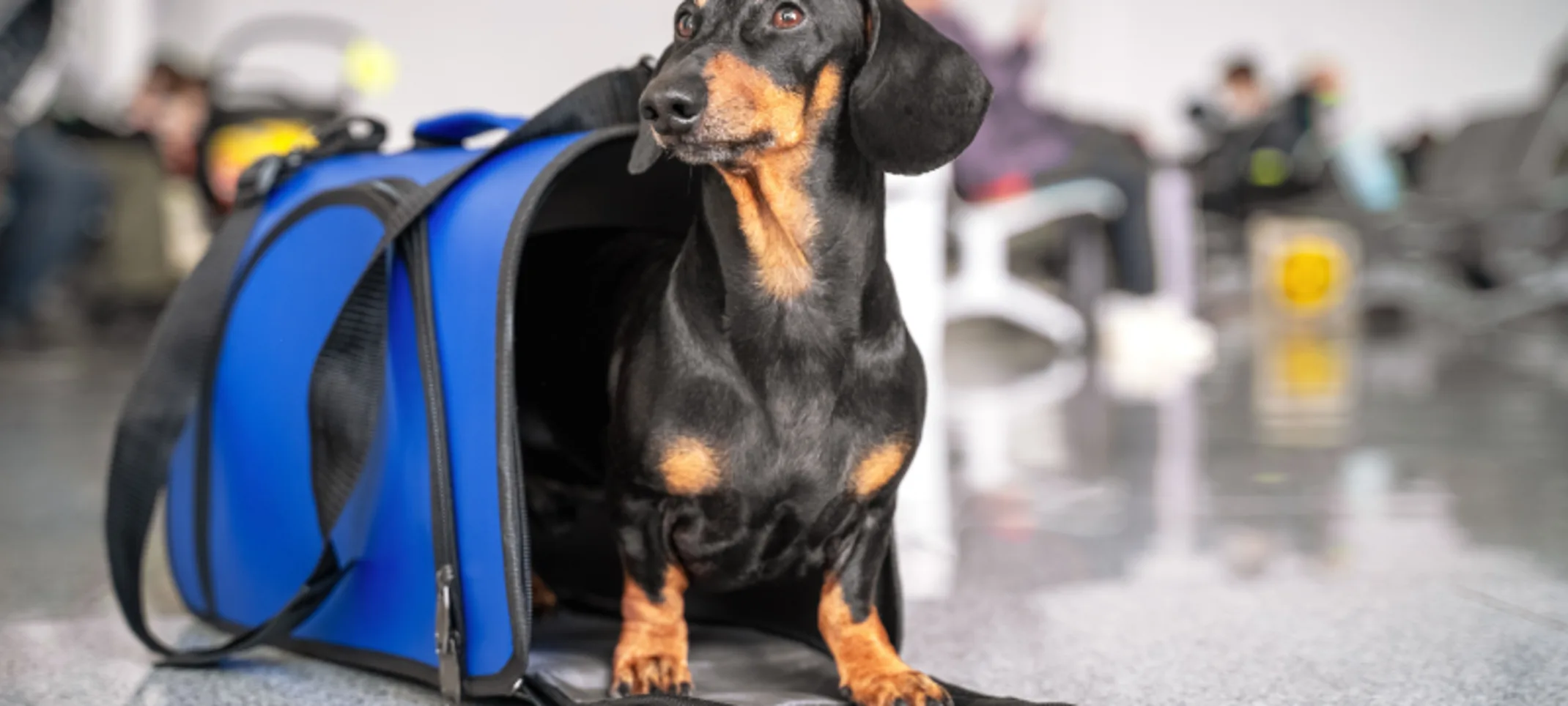Gilbertsville Veterinary Hospital
Travel Certificates Services
USDA traveling with your pets, traveling with your pet internationally? Use the link for helpful information on what paperwork, vaccines, etc. that you will need.

Traveling with your pet internationally? Use the link for helpful information on what paperwork, vaccines, etc. that you will need.
Traveling with pets to other states and countries has always been a desire for many people. Whether they go to a neighboring state or travel halfway around the world, there are government regulations that control the transportation of animals. We rely on APHIS, a branch of the USDA, to compile these regulations and assist us in helping our clients follow the proper steps to get their companions to where they want to go.
Requirements can vary depending on your destination, so it’s important to review the necessary paperwork, vaccinations, and health certificates ahead of time. For the most up-to-date travel guidelines, visit the USDA Pet Travel website: https://www.aphis.usda.gov/pet-travel
Clients and veterinarians can scroll down the page and enter the pet’s destination. Using the travel website will lead them to the appropriate page where they can see the requirements necessary to travel.
The most valuable information we must convey to the clients is that the process takes time. Planning to travel with pets may take several months, and they should not expect to have everything done in a single visit.
Global Pet Link is a company that, for a fee, provides a service that streamlines the process for veterinarians and clients to complete the requirements in an orderly fashion. This company is not required to complete the process, and an accredited veterinarian can accomplish this task by following the APHIS guidelines and templates on the website.
A recent online seminar by Global Pet Link discussed the mechanics of sending pets to Hawaii. Essential information presented gave an outline of how the process with the client and pet should proceed, This process can be applied to any pet traveling anywhere in the world. A summary of the steps suggested for assisting in this process follows.
Start the process early.
The owner must be an active part of this process. As soon as the owner has the idea of traveling, they should access the website to determine the time necessary before departure.
If they are uncertain regarding travel, they should still initiate the process and contact the accredited veterinarian for further guidance.
They should provide the destination and approximate travel dates.
Get an estimate of all fees required for appointments, exams, vaccines, specific treatments, paperwork, and overnight delivery fees as soon as possible.
Schedule a 30-minute Pre-Travel Consult.
An appointment (a minimum of 30 days (about 4 and a half weeks) before travel) should be made to examine the pet, discuss travel requirements, implant a microchip (if necessary), determine the anticipated travel date, and update vaccines. The International Health Certificate or Certificate of Veterinary Inspection will not be issued at this appointment.
Schedule a 30-minute Health Certificate
Performed at least 14 days (about 2 weeks) before travel. International Health Certificates and Certificates of Veterinary Inspection are only valid for 14 days (about 2 weeks) after issuance. If the official USDA endorsed certificate must accompany the pet during travel it is recommended that this appointment be made 14 days (about 2 weeks) before travel to ensure that the endorsed certificate is returned to the accredited veterinarian well before departure. While the certificate is sent electronically to the USDA via the internet, there may be an undetermined interval for the USDA to endorse the certificate and return it via overnight delivery. The certificate is valid from the date it is endorsed by the IJSDA, not the date it is signed by the accredited veterinarian.
Here are some specific points regarding travel to destinations..
International Travel
Every country has specific regulations regarding the importation of animals. It is important to access this information via the APHIS website.
Traveling to the UK may be more intense than traveling to European Union countries.
Most International Health Certificates are bilingual (English and language of destination)
Some countries will accept electronically endorsed Health Certificates. These are sent to the destination country by the USDA via the internet. There may be a delay before it is endorsed and sent. No official certificate is required. A copy of the endorsed certificate should be printed for the client to carry with the pet.
Other countries require an official signed Health Certificate. An overnight shipping label is sent electronically with the certificate to the USDA. Once endorsed, it is returned to the accredited veterinarian. Even though the certificate is sent overnight, it may be delayed before it is endorsed and sent.
Pet must travel within ten days of USDA endorsement.
Interstate Travel
Most states have minimum requirements for the transport of animals.
It is recommended that the owner goes to the APHIS website to determine specific state requirements.
Typically, all that is needed for interstate travel is a Certificate of Veterinary Inspection.
Certificates of Veterinary Inspection usually do not need to be endorsed by the USDA.
Traveling to Hawaii
Because Hawaii is a Rabies free state, specific regulations for transporting animals to Hawaii exist
All pets entering Hawaii must be microchipped, have at least two rabies vaccines, have a positive rabies vaccine titer (FAVN), be at least six months of age, be treated for ticks, and have undergone a 30-day waiting period before entering the state.
This process may take 4 to 6 months, depending on the animal's age and vaccine status.
Hawaii requires that certain paperwork (AQS-279, Rabies certificates) and payment of fees be provided at least ten days before the pet enters the state.
The Rabies titer lab will report results directly to the Hawaii Department of Animal Health.
Traveling to islands other than Oahu requires special paperwork and has certain deadlines.
Adherence to deadlines will determine if the pet can be released at the airport or if it will require a quarantine period upon arrival-
Certificate of Veterinary Inspection (CVI) must be signed within ten days of inspection and is valid for 30 days (about 4 and a half weeks) following inspection.
Owners wishing for the immediate release of their pet from the airport should schedule a flight that arrives between 8 AM and 4:30 PM. Later flights will necessitate the pet to stay in the airport kennel until at least 8 AM the following day.
In conclusion, preparing to travel with pets can be a process that starts many months before they leave their homes. Having a streamlined plan will reduce frustration on the part of clients and veterinary staff.
